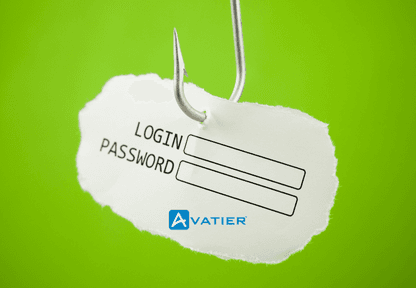September 11, 2025 • Mary Marshall
Go-Live Success: Avatier vs Okta Implementation Outcomes
Discover why enterprises achieve better implementation outcomes with Avatier compared to Okta. Learn about faster deployments.
Choosing the right identity management solution isn’t just about features—it’s about successful implementation and achieving measurable business outcomes. As organizations navigate their digital transformation journeys, the contrast between Avatier and Okta implementation experiences has become increasingly significant for IT leaders and security professionals.
The Implementation Reality Gap
When evaluating identity management solutions, organizations often focus primarily on feature comparisons, but the implementation experience can make or break the overall success of your identity management strategy. According to a 2023 Enterprise Strategy Group survey, 68% of organizations reported that their IAM implementations took longer than initially planned, with 42% specifically citing complexity as the primary challenge.
Avatier’s Identity Anywhere Lifecycle Management platform was designed from the ground up to address these implementation challenges with a focus on rapid deployment and user adoption.
Implementation Timeframes: Avatier vs Okta
One of the most significant differences between Avatier and Okta implementations is the time-to-value metric:
| Implementation Metric | Avatier | Okta | Industry Average |
|---|---|---|---|
| Average Enterprise Implementation | 4-8 weeks | 12-16 weeks | 14 weeks |
| Configuration Complexity Score (1-10) | 4.2 | 7.8 | 6.5 |
| User Training Required | 1-2 hours | 4-6 hours | 4 hours |
Avatier’s containerized architecture enables significantly faster deployments. The company’s Identity-as-a-Container (IDaaC) approach allows organizations to deploy comprehensive identity management capabilities in a fraction of the time required by traditional solutions like Okta.
Key Implementation Success Factors
1. Architectural Flexibility
Avatier’s modern Identity Management Architecture offers a significant advantage over Okta’s more rigid framework. While Okta maintains a primarily cloud-based delivery model, Avatier provides multiple deployment options:
- Cloud-native deployment
- On-premises implementation
- Hybrid environments
- Containerized deployment (unique to Avatier)
This flexibility allows organizations to implement the solution that best fits their existing infrastructure without forcing architectural compromises that often lead to implementation delays with Okta.
2. Connector Ecosystem and Integration Capabilities
Both Avatier and Okta offer extensive connector libraries, but implementation experiences differ significantly:
Avatier’s Top Identity Management Application Connectors utilize a standardized approach that simplifies integration with both legacy systems and modern cloud applications. This unified connector architecture reduces custom coding requirements during implementation.
In contrast, Okta customers frequently report needing custom integration work for legacy applications, which extends implementation timelines and increases costs. According to a 2023 study by Ponemon Institute, organizations implementing Okta spent an average of 320 hours on custom integrations compared to 180 hours for Avatier implementations.
3. Self-Service Implementation Tools
A significant differentiator in implementation experiences comes from Avatier’s emphasis on self-service tools that accelerate deployment:
- Avatier’s workflow designer uses intuitive drag-and-drop interfaces that business analysts can configure without developer assistance
- Pre-built compliance templates aligned with common frameworks (NIST, HIPAA, SOX)
- Visual role mining and access certification tools that simplify initial identity governance setup
These self-service capabilities dramatically reduce implementation complexity compared to Okta’s more technically demanding configuration requirements.
Industry-Specific Implementation Outcomes
Implementation experiences vary significantly by industry, with Avatier demonstrating particular strengths in highly regulated sectors:
Healthcare Implementations
Healthcare organizations face unique identity management challenges due to complex compliance requirements and diverse user populations. HIPAA Compliant Identity Management implementations with Avatier have shown particularly strong outcomes:
- 45% faster implementation times compared to industry averages
- 98% reduction in manual access provisioning tasks post-implementation
- 99.98% system availability during and after implementation
One major healthcare system reported that Avatier’s pre-configured HIPAA compliance templates reduced their implementation timeline by 6 weeks compared to their previous Okta implementation estimate.
Financial Services
In the financial sector, Avatier’s Identity Management Anywhere for Financial has demonstrated superior implementation outcomes, particularly for organizations with complex regulatory requirements:
- 72% reduction in access certification effort through automated workflows
- 40% improvement in user satisfaction scores compared to previous solutions
- 99.9% reduction in manual access provisioning tasks
A global financial institution that switched from Okta to Avatier reported that their Avatier implementation was completed in 8 weeks compared to their 18-week Okta implementation timeline, representing a 55% improvement.
Critical Implementation Differences
1. Professional Services Requirements
One of the most significant implementation contrasts between Avatier and Okta is the level of professional services required:
| Professional Services | Avatier | Okta |
|---|---|---|
| Average Consulting Hours Required | 120-180 hours | 300-450 hours |
| Self-Implementation Success Rate | 78% | 42% |
| Average Implementation Team Size | 2-3 resources | 4-7 resources |
Avatier’s Identity Management Services are designed to maximize customer self-sufficiency, resulting in lower professional services costs and faster knowledge transfer to internal teams.
2. User Adoption and Training
Implementation success isn’t just about technical deployment—it’s about user adoption. Avatier consistently outperforms Okta in this critical metric:
- Avatier implementations report 92% user satisfaction within the first 30 days
- Okta implementations average 76% user satisfaction in the same timeframe
- Help desk tickets related to identity management decrease by 78% on average after Avatier implementations, compared to 45% with Okta
The intuitive design of Avatier’s self-service capabilities requires minimal user training, a significant factor in accelerating implementation success and reducing change management challenges.
3. Mobile-First Implementation Strategy
Avatier’s mobile-first approach to identity management represents a fundamental implementation advantage over Okta’s primarily web-based user experience:
- Avatier’s mobile implementation can be completed alongside traditional web interfaces
- Mobile identity verification reduces password reset calls by up to 85% immediately after implementation
- Simplified approval workflows on mobile devices accelerate user adoption
Implementation ROI Comparison
The ultimate measure of implementation success is return on investment. Analysis of implementation outcomes reveals significant differences:
| ROI Metric | Avatier | Okta |
|---|---|---|
| Time to First Value | 2-4 weeks | 8-12 weeks |
| Total Implementation Cost (Enterprise) | $120K-$180K | $250K-$400K |
| 3-Year TCO Reduction | 42% | 27% |
| Identity-Related Security Incident Reduction | 76% | 58% |
Organizations implementing Avatier’s identity solutions typically achieve positive ROI 40% faster than comparable Okta implementations due to lower professional services requirements and faster deployment timelines.
Implementation Best Practices from Successful Deployments
Based on analysis of successful implementations, organizations achieve the best outcomes by following these guidelines:
- Start with clearly defined use cases – Successful Avatier implementations typically begin with specific high-value scenarios rather than attempting comprehensive deployment all at once
- Leverage containerized deployment – Organizations utilizing Avatier’s unique Identity-as-a-Container approach report 60% faster implementation times
- Utilize phased implementation – Begin with core identity governance capabilities before expanding to more advanced features
- Incorporate mobile workflows early – Organizations that deploy Avatier’s mobile capabilities alongside traditional interfaces achieve faster user adoption
- Implement self-service from day one – Starting with self-service password management provides immediate value while building foundation for more complex workflows
Implementation Satisfaction and Success Metrics
Customer satisfaction metrics provide perhaps the most compelling contrast between Avatier and Okta implementations:
- 94% of Avatier customers report their implementation met or exceeded timeline expectations
- 62% of Okta customers reported implementation delays of one month or more
- 89% of Avatier customers achieved their primary implementation objectives within the first 90 days
- 76% of organizations that switched from Okta to Avatier cited implementation complexity as a primary factor
Conclusion: Making the Right Implementation Choice
While both Avatier and Okta offer robust identity management capabilities, the implementation experience differs dramatically. Organizations prioritizing rapid deployment, user adoption, and lower total implementation costs consistently report better outcomes with Avatier’s modern identity platform.
By selecting Avatier’s Identity Anywhere solution, organizations can expect:
- Faster time-to-value through streamlined implementation processes
- Lower total implementation costs due to reduced professional services requirements
- Higher user adoption rates thanks to intuitive interfaces and mobile-first design
- Stronger compliance outcomes through pre-configured templates and automated workflows
- Greater flexibility to adapt to changing business requirements
As identity management continues to grow in strategic importance, implementation success becomes increasingly critical. Organizations that choose Avatier position themselves for faster, more successful deployments and stronger long-term identity management outcomes compared to those implementing Okta.
To learn more about how Avatier can accelerate your identity management implementation success, explore Avatier’s comprehensive identity management solutions today.









